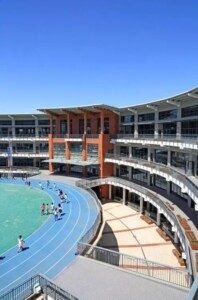Meng Mu San Qian (孟母三迁)
In Chinese culture, the story of Mencius‘ mother moving three times, known as “Meng Mu San Qian” (孟母三迁), is one of the most famous tales illustrating the profound importance of environment in education. This timeless story not only embodies key aspects of Chinese tradition but also serves as a valuable lesson for parents and educators worldwide.
The Tale of Mencius’ Mother and Its Significance
Mencius was one of China’s greatest philosophers. After his father died, his mother raised him alone. At first, they lived near a cemetery. Young Mencius often played by copying funeral rituals. His mother worried this wasn’t a good influence. So, she decided to move.
Next, they lived near a busy marketplace. But Mencius started mimicking the actions of the traders, pretending to buy and sell. His mother felt this environment wasn’t right either. She wanted something better for her son, so they moved again.
Finally, they settled near a school. Here, Mencius began copying the students, reciting lessons and studying. His mother was pleased. This environment encouraged him to love learning. Because of this, Mencius grew up to become a great philosopher.
The Importance of Environment in Chinese Education
This story is a classic example of the traditional Chinese belief that “近(jìn)朱(zhū)者(zhě)赤(chì),近(jìn)墨(mò)者(zhě)黑(hēi),” which means that one is influenced by the company they keep. In Chinese education, the environment is considered crucial to a child’s development. Parents are encouraged to carefully select the surroundings in which their children grow up, as these early influences can shape their character, values, and future success.
The Modern Parallel: School District Houses in China
Today, the concept of “孟(mènɡ)母(mǔ)三(sān)迁(qiān)” finds a modern parallel in the phenomenon of “school district houses” (学(xué)区(qū)房(fánɡ)) in China. Just as Mencius’ mother moved multiple times to ensure her son was in the best environment for his education, contemporary Chinese parents are highly motivated to move to neighborhoods with top-rated schools. These parents understand that the right educational environment can significantly influence their children’s academic success and future prospects.
In many Chinese cities, properties located within desirable school districts are highly sought after and often come with a hefty price tag. Parents are willing to invest in these homes to secure a spot for their children in prestigious schools. This modern trend underscores the enduring belief in the importance of a good educational environment—a belief that has deep roots in Chinese culture, as illustrated by the story of Mencius’ mother.
Learning Chinese Through Cultural Stories
For those learning Chinese, understanding stories like “Meng Mu San Qian” (孟母三遷) offers a deeper insight into Chinese culture and traditional values. At Mandarin Zone, we integrate these cultural elements into our language instruction, making the learning experience more meaningful and enriching.
By studying these stories, our students not only improve their Chinese language skills but also gain a profound understanding of Chinese traditions and educational philosophies. This cultural immersion is what makes learning Chinese at Mandarin Zone a unique and transformative experience.
Why Choose Mandarin Zone?
At Mandarin Zone, we are committed to providing a learning environment that fosters both linguistic and cultural fluency. Our curriculum is designed to help students of all levels achieve their language goals while also understanding the cultural context behind the language. Whether you’re a beginner or looking to advance your Chinese skills, Mandarin Zone offers tailored programs to meet your needs.
Get in Touch with Us
If you are interested in learning more about Chinese culture and improving your Chinese language skills, we invite you to explore our programs at Mandarin Zone. For any inquiries or to sign up for classes, please visit our Contact Us page. Let us help you embark on a journey of learning Chinese in a culturally rich environment.



